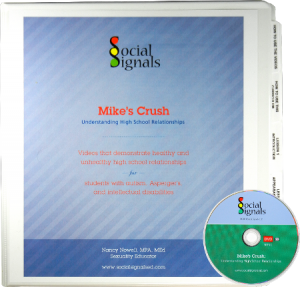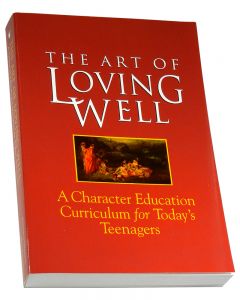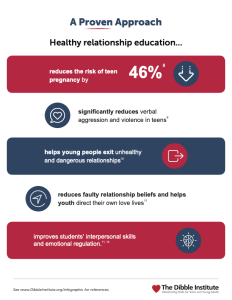Dibble’s programs have undergone numerous research evaluations to determine the effectiveness of varied factors.
- Impact of a relationship-based intervention, Love Notes, on teen pregnancy prevention. Family Relations, 1-20. Barbee, A. P., Cunningham, M. R., Antle, B. F., Langley, C. N. (2022)
- Impact of Two Adolescent Pregnancy Prevention Interventions on Risky Sexual Behavior: A Three-Arm Cluster Randomized Control Trial 2016
- Effectiveness of relationship education among high school youth: the role of context, International Journal of Adolescence and Youth, Esra Şahin, Joshua J. Turner, J. Scott Crapo, Kay Bradford & Brian Higginbotham (2025).
- Love Notes: A quasi-experimental comparison of formats and a 3-month follow up. Crapo, J. S., Bradford, K., & Higginbotham, B. J. (2025).
- For a full report and presentation by Dr. Crapo, Click Here
- Love Notes – CHAMPS Evaluation Abstract; Kent School of Social Work, University of Louisville. Program Director: Dr.Anita Barbee barbee@louisville.edu; Lead Evaluator: Dr. Michael Cunningham. 2016
- Healthy relationship education programmes for young people: Systematic review of outcomes. Pastoral Care in Education, 41, 266-288. Benham-Clarke, S., Roberts, G., Janssens, A., & Newlove-Delgado, T. (2023).
- Distress as an outcome in youth relationship education programming: Change mechanisms of hope and conflict. Family Relations, 70, 319-326. Kanter, J.B., Lannin, D. G., Russell, L. T., Parris, L., & Yazedjian, A. (2020).
- An Evaluation of the Love Notes Curriculum Implemented as a College Class. McClain, H. et al. (2020).
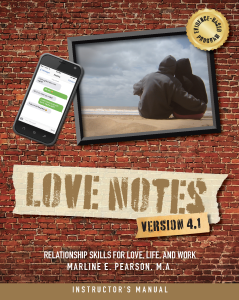
- Shifting the Relationship Education Field to Prioritize Youth Relationship Education. Alan J. Hawkins (2017). Journal of Couple & Relationship Therapy.
- Evaluation of Love Notes and Reducing the Risk in Louisville, KY 2016
- Updated Findings From the HHS Teen Pregnancy Prevention Evidence Review (pdf). Julieta Lugo-Gil, Amanda Lee, Divya Vohra, Katie Adamek, Johanna Lacoe, and Brian Goesling, June 2016.
- Interview with Primary Investigator, Anita P. Barbee, MSSW, Ph.D. October 2016
- OAH Teen Pregnancy Prevention Program: Spotlighting Success 2016
- Building Brighter Futures Evaluation Report February 2014
- Building Brighter Futures Helps Parents Meet Child Support Obligations. Judi Jordan and Kay reed. 2015.
- The Building Brighter Futures Evaluation Report: Promoting Responsible Parenting and Co-parental Cooperation among Non-custodial Parents with Child Support Orders. 2014.
- Building Brighter Futures Executive Summary. 2014.
- Sex Education in a Healthy Relationship Curriculum Could Lead to Reductions in Risky Sexual Behavior 2012
- The YouthBuild USA Evaluation Study of Love Notes July12, 2010
- Evaluation of the Youth Build USA Pilot Study of Love Smarts April 15, 2009
Review the Mind Matters Underlying Evidence Base document here.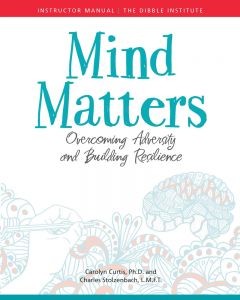
Rueda, H.A., Vera, A., Marcial, A. et al. (2023). A formative evaluation of “Mind Matters: Overcoming Adversity and Building Resiliency’ with Hispanic adolescents prior to and during Covid-19. Journal of Child & Adolescent Trauma. https://doi.org/10.1007/s40653-023-00585-3
Antle, B.F., et al. (2021). Mind Matters Comprehensive Evaluation Final Report. Findings from a randomized control trial conducted at the University of Louisville. Read the Full Report here.
Antle, B.F., and Cooper, S. (2020). Mind Matters Technical Report. Preliminary findings from an ongoing randomized control trial conducted at the University of Louisville.
WEBINAR: The Impact of Mind Matters: Results from the University of Louisville’s pilot Study. March 2020.
- Gregson, K., Adler-Baeder, F., McGill, J., Wei, M., & Wang, Z. (2025). Impact Evaluation of the Alabama Youth Relationship Education Project in Auburn, AL. Office of Planning, Research, and Evaluation; Administration for Children and Families.
- Benham-Clarke, S., Roberts, G., Janssens, A., & Newlove-Delgado, T. (2023). Healthy relationship education programmes for young people: Systematic review of outcomes. Pastoral Care in Education, 41, 266-288.
- Chan, A.E., Harcourt-Medina, K.T., & Adler-Baeder, F. (2022). Lessons from the Field. Classroom gender composition in the context of youth relationship education. Family Relations, 71, 1484-1496.
- Alamillo, Julia, and Elizabeth Doran (2022). Healthy Marriage and Relationship Education for High School Students: The Longer-Term Impacts of Relationship Smarts PLUS in Georgia, OPRE Report # 2022-325, Washington, DC: Office of Planning, Research, and Evaluation, Administration for Children and Families, U.S. Department of Health and Human Services
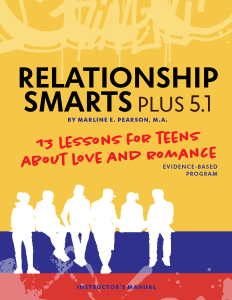
- McElwain, A. and Finnegan, V. (2022). Emerging professionals practicing family science: Reflections of peer educators delivering relationship education. Family Relations.
- Understanding Change in Violence-Related Attitudes for Adolescents in Relationship Education. Savasuk-Luxton, R., Adler-Baeder, F., & Haselschwerdt, M. L. (2018). Journal of Adolescence, 63, 153-164.
- A Methodological Review and Critique of the “Intergenerational Transmission of Violence.” Haselschwerdt, M. L., Savasuk-Luxton, R., & Hlavaty, K. (2017). Trauma, Violence, & Abuse,
- Youth Relationship Education: A Meta-Analysis. McElwain, A., McGill, J., Savasuk-Luxton, R. (2017). Children and Youth Services Review, 82, 499–507.
- Factors Associated with Romantic Relationship Self-Efficacy Following Youth-Focused Relationship Education. Family Relations. Futris, T. G., Sutton, T. E. and Duncan, J. C. (2017). Family Relations, 66(5), 777-793.
-
Shifting the Relationship Education Field to Prioritize Youth Relationship Education. Alan J. Hawkins (2017). Journal of Couple & Relationship Therapy.
- Findings for Youth Participants in Relationship Education. Adler-Baeder, F., Savasuk-Luxton, R., Ketring, S., Smith, T., & Kerpelman, J. L. (2015). Alabama Healthy Marriage and Relationship Education Initiative.
- Relationship Education and Classroom Climate Impact on Adolescents’ Standards for Partners/Relationships. Ma, Y., Pittman, J. F., Kerpelman, J. L., Adler-Baeder, F. (2014). Family Relations, 63,453-468.
- A Cross-lagged Model of Adolescent Dating Aggression Attitudes and Behavior: Relationship Education Makes a Difference. Pittman, J. F., & Kerpelman, J. L. (2013) Published Proceeding, Hawaii International Social Science Conference, Waikiki, HI.
- An Evaluation of the Relationship Smarts Plus Program on Adolescents in Georgia. Futris, T. G., Sutton, T. E., and Richardson, E. W. (2013). Journal of Human Sciences and Extension, 1(2).
- Merging Relationship Education and Child Abuse Prevention Knowledge: An Evaluation of Effectiveness with Adolescents. Schramm, D. G. & Gomez-Scott, J. (2012) Marriage & Family Review, 48:8, 792-808.
- Healthy Relationship Education for Dating Violence Prevention Among High-Risk Youth. Antle, B. F., Sullivan, D. J., Dryden, A., Karam, E. A., Barbee, A. P. (2011). Children and Youth Services Review, 33(1), 173-179.
- Relationship Class Links Undergrads and Teens. Cami K. McBride, Carrie Miller and Valerie Vorderstrasse Department of Psychology, Roosevelt University (2011)
- What Adolescents Bring to and Learn from Relationship Education Classes: Does Social Address Matter? Kerpelman, J. L., et al., (2010). Journal of Couple & Relationship Therapy, 9:2, 95-112
- Evaluation of a Statewide Youth-Focused Relationships Education Curriculum. Kerpelman, J.L., et al., (2009). Journal of Adolescence.
- Relationship Smarts: Assessment of an Adolescent Relationship Education Program. Trella, D. (2009). National Center for Family & Marriage Research, WP-09-12.
- Identity as a Moderator of Intervention Related Change Identity Style and Adolescents’ Responses to Relationships Education. Kerpelman, J. L., Pittman, J. F., & Adler-Baeder, F. (2008).Identity: An International Journal of Theory and Research, 8:2, 151-171.
- The Impact of Relationship Education on Adolescents of Diverse Backgrounds. Adler-Baeder, F., Kerpelman, J. L., Schramm, D. G., Higginbotham, B., Paulk, A. (2007). Family Relations, 56, 291–303
- Youth Focused Relationship and Marriage Education. Kerpelman, J.L. (2007). The Forum for Family and Consumer Issues, 15405273.
- Looking Towards a Healthy Marriage: School-Based Relationships Education Targeting Youth. Alder-Baeder, F. (2005) College of Human Sciences, Auburn University.
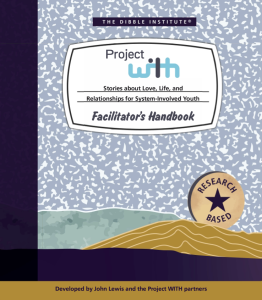
Nakamoto, J., Carter, C., & Russo, S. (2025). Implementation and impact of the project with curriculum in Juvenile Justice facilities and group homes. WestEd. https://www.wested.org/resource/implementation-and-impact-of-the-project-with-curriculum/


